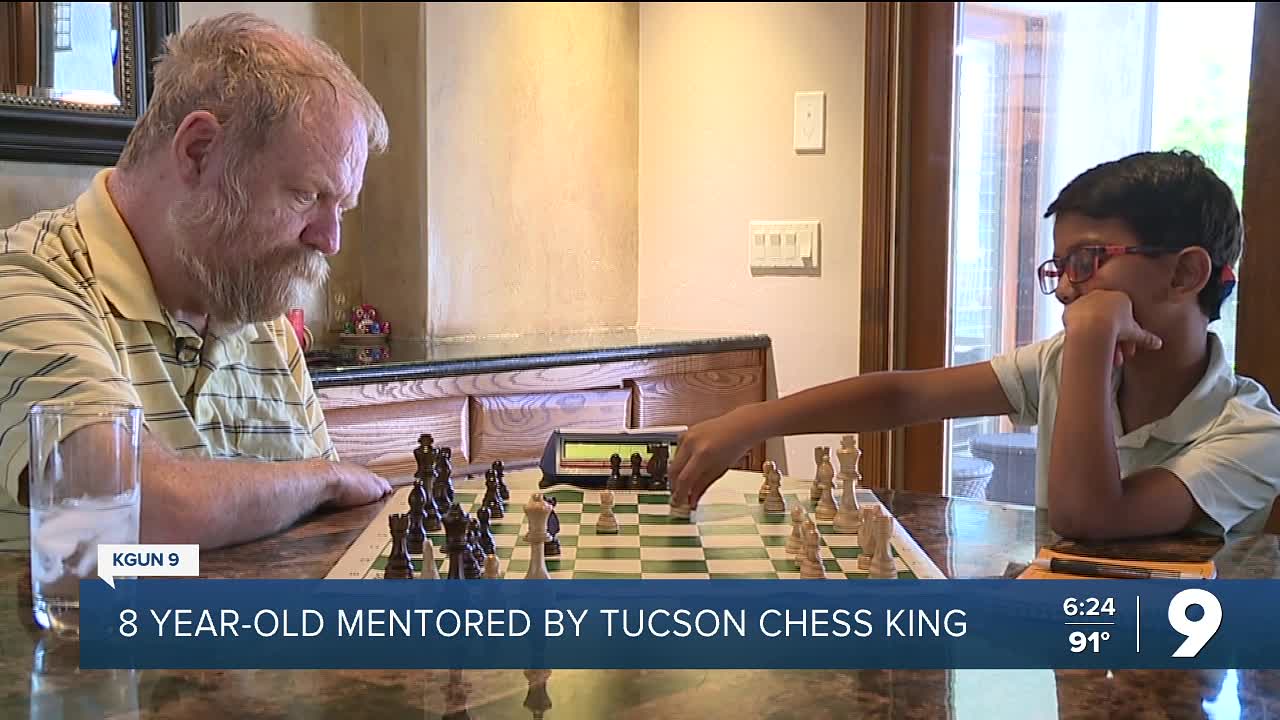TUCSON, Arizona — On a Sunday afternoon in Tucson, Arizona, Ken Larsen, a chess coach with over four decades of experience, sits across from eight-year-old Nik Jain, offering a gentle nudge: “Maybe you should protect that pawn.”
Nik, a second grader at Ventana Vista Elementary, responds with focus, explaining his strategy: “In the opening, I’m trying to get pieces in the center and develop.” It’s a scene that captures the essence of chess—a game of strategy, intuition, and mentorship—and no one embodies this better than Larson, Tucson’s undisputed “Chess King.”Larsen has been a fixture in the local chess community since his days as a player at Amphi Middle School. Coaching since 1983, he’s guided countless young players to success, including Nik’s father, Sameer Jain, a former Arizona state champion.
Now, Larsen is passing his wisdom to the next generation, with Nik as one of his star pupils. “When you win a game or figure out a position, it’s just satisfying,” Larson says, a sentiment that resonates with his young protégé, Nik, who already takes fourth-grade math despite being in second grade, shows a natural aptitude for chess.
“Some kids have a natural feel for math—some kids don’t,” Larsen notes, drawing parallels to the strategic thinking required on the board. Under Larsen’s guidance, Nik has helped Ventana Vista Elementary secure second place in the last two Arizona state chess championships, earning trophies nearly as tall as he is. “The gold one is an inch shorter than me,” Nik says matter of factly.
What makes Larsen’s coaching special is his ability to break down complex concepts for young minds. “When I explain concepts that might be complicated for an eight-year-old, he seems to understand them pretty well,” Larsen says of Nik.
This talent for chess runs in the famil. And, Nik's father, Sameer Jain, who once trained under Larson, knew exactly who to call when he wanted the best for his son. “Ken is a good individual. He’s got a kind heart, he cares. He’s very smart. He plays chess at an extremely high level,” Sameer says.
In an era where artificial intelligence is transforming chess with powerful engines and analysis tools, Larsen brings something AI can’t: human connection and intuitive understanding. “Because you have to think about what move you want to play and what are the best moves and what are bad moves,” Nik explains, echoing the strategic mindset Larson instills. This blend of logic and creativity has helped Nik excel, much like his father did years ago.
For Sameer, watching his son thrive under his former coach is a source of pride. “Nik is a great kid, and it’s really cool to see him excel and doing well,” he says. “It’s cool to see his love of the game. I hope that he continues to grow with it.”
As Nik continues to progress, earning accolades and mastering the board, Larson remains the steady hand guiding Tucson’s chess legacy. From one generation to the next, the Chess King’s influence endures, one move at a time.





